The Missteps of History

The Missteps of History
From Adam (AS) to Muhammad (SAW), Allah sent numerous Messengers to guide humanity. The core message delivered to each of them was Tawheed, the oneness and sovereignty of Allah. Despite the differences in laws, penalties,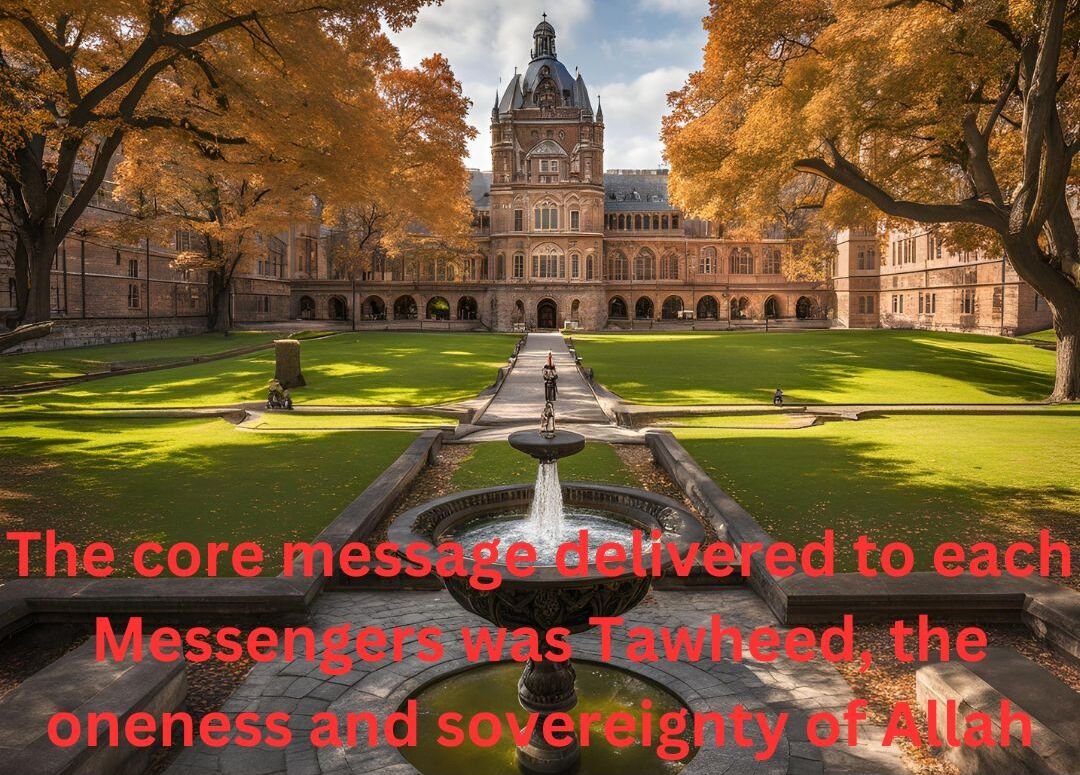 and methods of worship due to variations in time, place, and context, the fundamental principle—Tawheed—remained unchanged. Allah entrusted every Messenger with the duty of bringing their respective nations under the sovereignty of Allah.
and methods of worship due to variations in time, place, and context, the fundamental principle—Tawheed—remained unchanged. Allah entrusted every Messenger with the duty of bringing their respective nations under the sovereignty of Allah.
The same purpose for which Allah sent previous Messengers to earth applied to His final Messenger: to establish peace and Islam in human life. Allah instructed him (SAW) to invalidate and replace all other systems of life with this final system of life (Surah Tawba 33, Surah Fatah 28, Surah Saf 9). The only path to peace is Allah’s prescribed system of life. Allah did not send His greatest Messenger merely to teach prayer, fasting, Hajj, and Zakat. These were means to an end, the end being the establishment of Deen-ul-Qayyimah, the straight path, across the world. Establishing this final system of life across the entire world in one lifetime is impossible. The Messenger (SAW) established this final system of life in the entire Arabian Peninsula during his 23 years of Messengerhood—this was the final version of Islam for human life. However, his responsibility, given by Allah, encompassed the entire world and all of humanity. Until this final system of life is established globally, humanity will continue to experience unrest, war, and injustice, as seen today. Peace and Islam will not prevail, and the mission given to the Messenger (SAW) by Allah will remain unfulfilled.
The Messenger (SAW) partially completed his duty and entrusted the remaining work to his followers, his Ummah. Every Messenger completed their duty with the help of their followers, their Ummah. No Messenger carried out their duty alone. Their tasks always involved communities, societies, and masses, not just individuals. None of them could fulfill their duties in isolation, whether in caves, solitude, or retreats. The same applied to the last Messenger (SAW). From the moment he received Messengerhood until his passing, the busiest man on earth spent his life among people, amidst continuous struggle and armed conflict—this history cannot be denied. The entire life of Messengerhood was outward-facing— the Deen he brought from Allah was extroverted and combative. The fact that his Ummah fully understood the responsibility entrusted to them is evidenced by their subsequent actions. Upon the passing of the Messenger (SAW), his Ummah abandoned their homes, families, businesses, and comforts to complete the unfinished mission of their beloved leader, spreading out across the world. History does not record another instance where an entire nation left their homeland to establish a great ideal on earth. Within a short time, they defeated two of the world’s superpowers in armed conflict, establishing the rule of Allah’s law throughout Central Asia. These powerful empires were the Romans and the Persians, one Christian and the other fire-worshippers. Despite being vastly superior in numbers, resources, and military strength, these two superpowers were defeated by the fledgling nation. The Christian power retreated from the Middle East, while the fire-worshipping power accepted Allah’s Deen and became part of the new nation, known today as Iran. Within 60 to 70 years, this nation conquered half of the known world, bringing it under the rule of Allah’s law. They established justice, economic prosperity, and security, leading to a peaceful society where no one went hungry.
 There was such abundance of wealth that it was difficult to find recipients for charity. Social security was so robust that a young woman adorned with jewelry could travel hundreds of miles without fearing anything other than Allah and wild animals. People did not feel the need to lock their doors when they slept. Even in the darkest nights, people refrained from wrongdoing out of fear of Allah. Consequently, there were months when the courts received no criminal cases. People left their gold shops unattended. The influence of Allah’s true system of life instilled qualities like truthfulness, trustworthiness, altruism, hospitality, generosity, sacrifice, and charity in people’s character. Their word was more valuable than their lives. True Islam transformed a barbaric, quarrelsome, and immoral nation from the era of Jahiliyyah into the most civilized nation, quickly becoming the best nation on earth.
There was such abundance of wealth that it was difficult to find recipients for charity. Social security was so robust that a young woman adorned with jewelry could travel hundreds of miles without fearing anything other than Allah and wild animals. People did not feel the need to lock their doors when they slept. Even in the darkest nights, people refrained from wrongdoing out of fear of Allah. Consequently, there were months when the courts received no criminal cases. People left their gold shops unattended. The influence of Allah’s true system of life instilled qualities like truthfulness, trustworthiness, altruism, hospitality, generosity, sacrifice, and charity in people’s character. Their word was more valuable than their lives. True Islam transformed a barbaric, quarrelsome, and immoral nation from the era of Jahiliyyah into the most civilized nation, quickly becoming the best nation on earth.
The Messenger (SAW) said that his Ummah’s lifespan would be 60 to 70 years. This means that the collective lifespan of his Ummah, those who were rightly guided and did as they were taught would be 60/70years, his Ummah in fact, carried out their duties for 60 to 70 years. After that, they abandoned their mission, forgetting their true purpose. They deviated from the path defined by Allah and His Messenger (SAW), focusing instead on minute details and analyses of the simple Deen meant to be established through struggle. This led to the creation of numerous sects, schools of thought, and factions, ultimately causing the destruction of the Ummah. However, this destruction was not solely due to excessive analysis by scholars. Another primary reason was the infiltration of distorted Sufi ideologies—imbalanced mysticism—into the Deen-ul-Qayyimah, the straight path.
Throughout history, Allah sent various systems of life, each with an exquisite balance. One of the main characteristics of these systems is balance. The previous Deens also had balance, as humans are both body and soul, social beings with individual lives. Therefore, the Deen must fulfill both types of needs, or it would fail. Thus, Allah’s systems of life always inherently maintained balance. However, the Deens revealed to previous Messengers were limited by time and context, and their balance was also contextually limited. Nonetheless, humanity disrupted even this balance. They either adhered to the laws and regulations literally, losing the spirit of the Deen, or abandoned the social regulations meant to establish political and economic justice, opting instead for asceticism for spiritual advancement. In both cases, the balance was lost. To restore this balance, Allah had to send new Messengers. The final systems of life sent by Allah through His last Messenger (SAW) was for all humanity. It included political, social, economic, legal, judicial, and punitive systems for collective life and provisions for individual spiritual growth, both were present, but in a balanced manner. Allah clarified in the Qur’an, "Thus, We have made you a balanced nation" (Qur’an, Surah Al-Baqarah 143). If this balance is lost, leaning towards one aspect, the system collapses. Mysticism entered the Deen, disrupting its balance by disregarding the collective aspects—political, economic, and social systems prescribed by Allah—and focusing solely on individual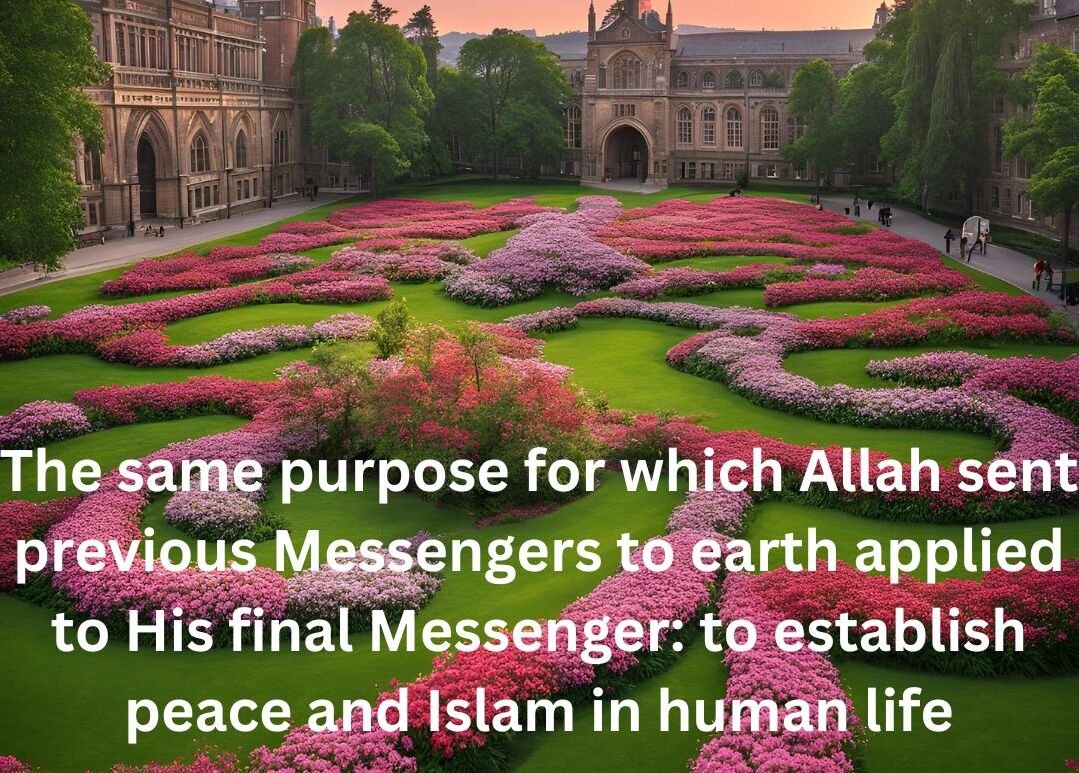 spiritual practices as religious duties. Meanwhile, scholars began dissecting the laws and regulations of the Deen minutely. Both groups leaned in opposite directions, losing the balance. The mission for which the Messenger (SAW) was sent and for which his Ummah sacrificed everything to establish on earth was neglected and abandoned. This marked the end of the Ummah of Muhammad (SAW) as a nation. These two groups—scholars and mystics—became inward-looking (introverted). Scholars secluded themselves with books, pens, and papers, while Sufis retreated to their cells with rosaries. Only a scattered few remained aware of the nation’s purpose, goal, the straight path, and Deen-ul-Qayyimah. However, as a nation, this Ummah no longer remained the Ummah of Muhammad (SAW) and did not stay on the straight, simple path. Predicting this unfortunate event, the Messenger (SAW) said, "The lifespan of my Ummah is 60 to 70 years", because this calamity befell the Ummah 60 to 70 years after his passing.
spiritual practices as religious duties. Meanwhile, scholars began dissecting the laws and regulations of the Deen minutely. Both groups leaned in opposite directions, losing the balance. The mission for which the Messenger (SAW) was sent and for which his Ummah sacrificed everything to establish on earth was neglected and abandoned. This marked the end of the Ummah of Muhammad (SAW) as a nation. These two groups—scholars and mystics—became inward-looking (introverted). Scholars secluded themselves with books, pens, and papers, while Sufis retreated to their cells with rosaries. Only a scattered few remained aware of the nation’s purpose, goal, the straight path, and Deen-ul-Qayyimah. However, as a nation, this Ummah no longer remained the Ummah of Muhammad (SAW) and did not stay on the straight, simple path. Predicting this unfortunate event, the Messenger (SAW) said, "The lifespan of my Ummah is 60 to 70 years", because this calamity befell the Ummah 60 to 70 years after his passing.
So what remained when the Ummah of Muhammad ceased to exist as a nation? A Muslim nation. The term "Muslim" refers to those who accept the system of life given by Allah with respect and establish it in their national and personal lives, rejecting any other system of life. Because this nation abandoned the struggle to establish the Deen conveyed through the Sunnah of the Messenger (SAW) worldwide, it deviated from the true definition of the Ummah of Muhammad and became merely a Muslim nation. Their constitution remained the Qur'an and Hadith, encompassing political, socio-economic systems, governance, and penal code according to the Qur'an and Hadith. They considered any other political or socio-economic system as shirk. However, they lost their true purpose of creation, meaning their Aqeedah (belief) became distorted.
The once destitute nation that now ruled from the Atlantic shores to the Chinese border, from the Ural Mountains in the north to the Indian Ocean in the south, had become incredibly powerful in wealth, military strength, and population. No power on earth dared to confront this nation. Unfortunately, at this peak, the Ummah forgot its original purpose and mission, and its Aqeedah was corrupted. Instead of establishing peace (Islam) in the world, their goal became ruling like any other empire.
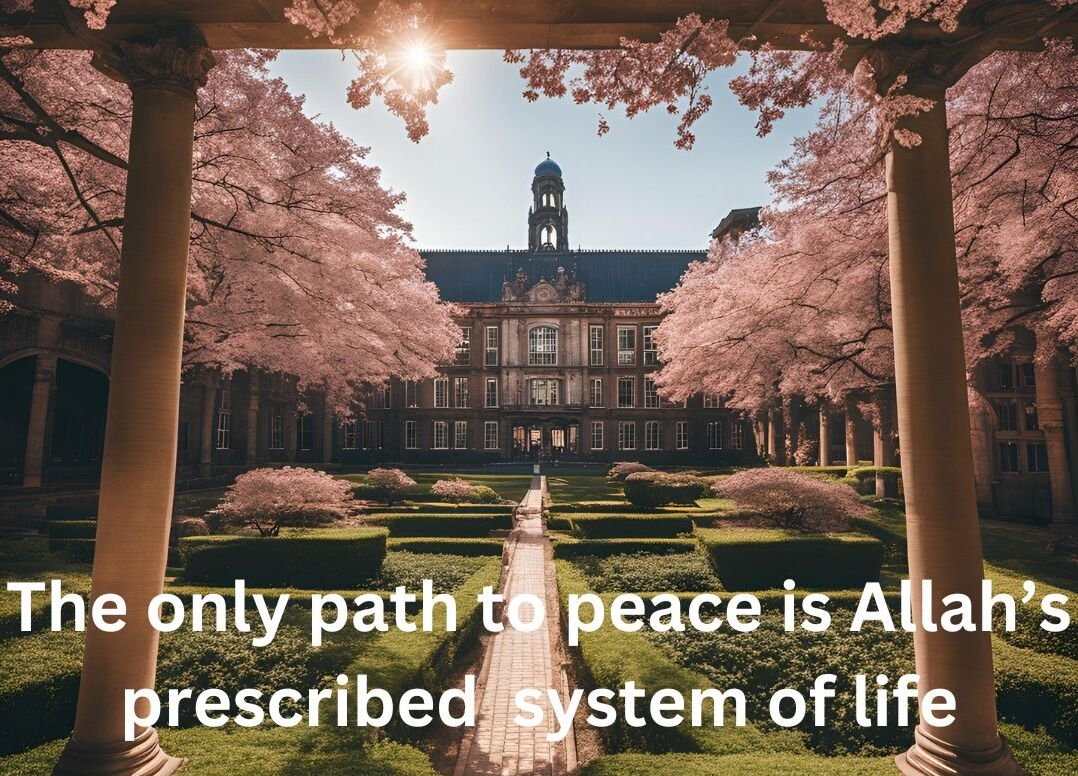 However, despite abandoning their true purpose, they still largely adhered to the final system of life, the Deen, and thus reaped its benefits. By implementing governance and economic systems according to the Qur'an and Hadith, the nation achieved remarkable success in law, order, and wealth distribution. By enthusiastically following the command to acquire knowledge from Allah and His Messenger (SAW), they quickly became the world's teachers. This period, from abandoning the struggle as the Ummah of Muhammad to becoming subjugated and enslaved by various European nations, was a time of political, socio-economic, and educational advancement. This period is often referred to as the Golden Age of Islam.
However, despite abandoning their true purpose, they still largely adhered to the final system of life, the Deen, and thus reaped its benefits. By implementing governance and economic systems according to the Qur'an and Hadith, the nation achieved remarkable success in law, order, and wealth distribution. By enthusiastically following the command to acquire knowledge from Allah and His Messenger (SAW), they quickly became the world's teachers. This period, from abandoning the struggle as the Ummah of Muhammad to becoming subjugated and enslaved by various European nations, was a time of political, socio-economic, and educational advancement. This period is often referred to as the Golden Age of Islam.
However, all of this is meaningless if the primary purpose and goal are abandoned. Abu Bakr (RA), the close companion of the Messenger (SAW) and the first Caliph, understood this truth. Upon being elected Caliph, his first speech addressed the Ummah of Muhammad, saying, "O Muslim nation! Never abandon Jihad (struggle). Allah does not let a nation that abandons Jihad escape disgrace and humiliation." Abu Bakr (RA) made this statement in his first speech because he had learned the true essence and reality of this Deen from the Messenger (SAW). Besides learning from the Messenger, Abu Bakr (RA) surely read Allah's warning in the Qur'an, addressing this believing nation and the Ummah of Muhammad: "If you do not go forth (for Jihad), He will punish you with a severe punishment and will replace you with another nation" (Qur'an, Surah At-Tawbah 39). Not only Abu Bakr (RA), but also Umar (RA), Uthman (RA), and Ali (RA) were fully aware of this essence, evidenced by their continuous armed struggle to establish the final system of life on earth. There is no historical record of any companion of the Messenger (SAW) speaking a single word in favor of pausing this armed struggle. Rather, each companion sacrificed their worldly possessions, entrusted their families to Allah, and carried out armed struggles in unknown lands for years. Like Abu Bakr (RA), they knew that this struggle was the responsibility given by Allah to the Messenger (SAW), which had now fallen upon them as his Ummah. They knew that abandoning this struggle meant being expelled from the Ummah of Muhammad, incurring Allah's wrath, and ultimately being defeated, humiliated, and despised by Allah's enemies, as Abu Bakr (RA) had warned.
However, the unfortunate nation did just that. They became divided into various sects and schools of thought due to the over-analysis of the Deen by scholars and, following the distorted Sufism of Sufi mystics, lost their outward-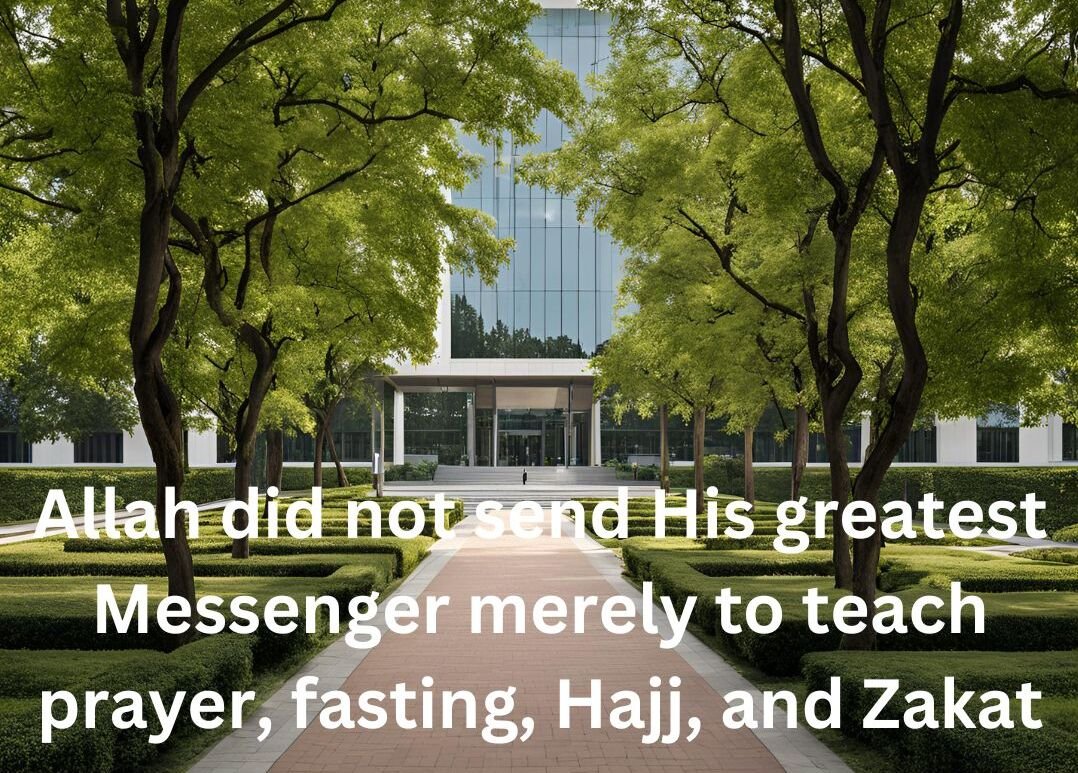 facing, explosive character and became introverted.
facing, explosive character and became introverted.
During the centuries-long decay of the nation, the enemies of this Ummah did not remain idle. They continuously attempted to destroy this nation. Despite the immense military qualities and character instilled in them by the Messenger (SAW), which prevented European powers from achieving significant victories, the distorted Aqeedah of the Ummah further weakened them from the inside. When the decay became severe, the nation could no longer resist enemy attacks and became slaves to European Christian nations. When the enemies implemented their own laws and governance systems over their enslaved nation, this nation ceased to be Muslim and became Mushrik (polytheist) and Kafir (disbeliever) like their masters. If the nation responsible for establishing peace (Islam) on earth accepts the very man-made laws they were supposed to destroy, what remains of them? By adopting man-made laws in their national life, the nation practically became Mushrik and Kafir, and they have not reverted to their original state since.
There is no doubt that after becoming slaves to Europe, many people in this nation still believed in Allah and His Messenger (SAW) with complete faith, but this faith was personal, not national. Nationally, their political, socio-economic, and educational systems were under European Christian control, replacing Islamic systems with their own. Can a nation maintain the status of Muslim or Mu’min (believer) in the eyes of Allah while only preserving Allah’s political and socio-economic system in their personal lives? The clear answer is no. In the Qur'an, Allah says, "Do you believe in part of the Book and disbelieve in part? Then what is the recompense for those who do so among you except disgrace in worldly life and a severe punishment on the Day of Resurrection" (Qur'an, Surah Al-Baqarah 85). Allah clearly states that accepting some of His commands and rejecting others is partial belief, which is shirk. The result of this will not only be in the Hereafter but also in this world, in the form of disgrace and humiliation. Allah has promised believers honor and status above others in both worlds. If He threatens them with disgrace in this world and severe punishment in the Hereafter, using the word "severe," it is clear that He does not consider them Mu’min. Even though they meticulously follow Allah’s laws (Shari'ah) in their personal lives, they cannot remain believers by ignoring His comprehensive system for national life.
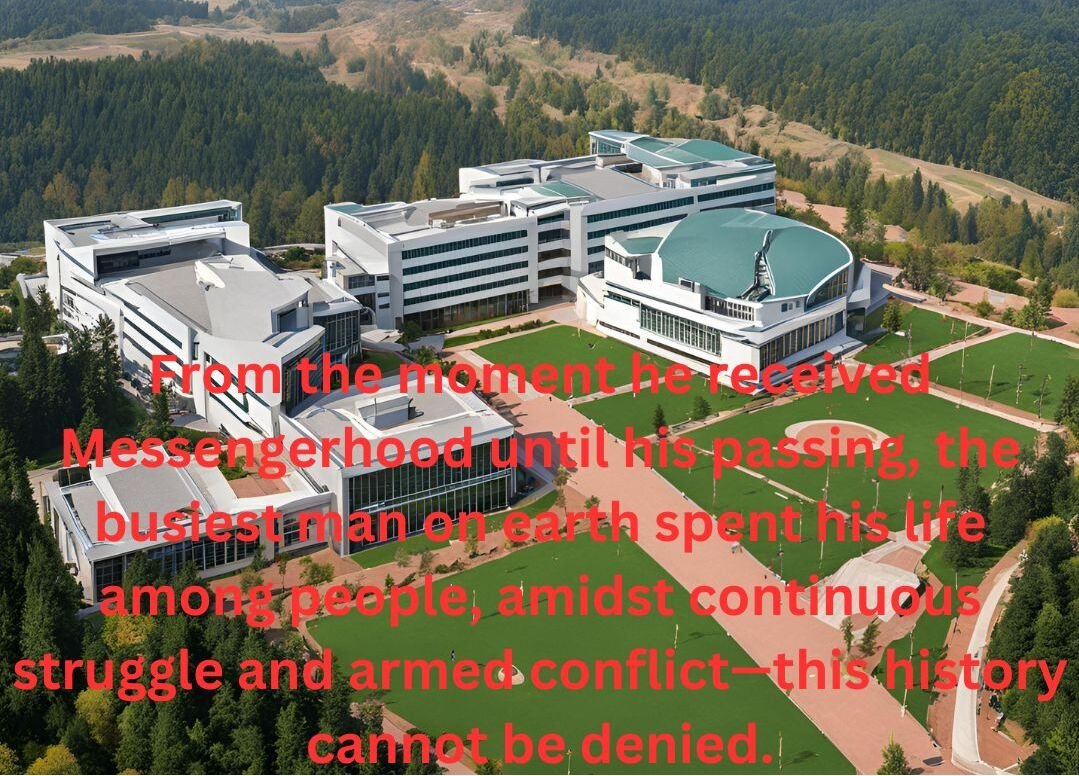 Allah further says in the Qur'an, "O you who have believed, enter into Islam completely [and perfectly] and do not follow the footsteps of Satan" (Qur'an, Surah Al-Baqarah 208). Due to the distortion of Aqeedah, today, this command is interpreted as following the minute details of Islam. In reality, Allah commanded believers to accept the entire system of life of Islam fully and completely, not partially. By ignoring either the national or personal aspects, one follows the footsteps of Satan, resulting in continuous injustice, unrest, and bloodshed in the world, as seen today. Therefore, when this nation became slaves to Europeans and their political and socio-economic systems replaced Islamic systems, they ceased to be Muslims and became Mushrik and Kafir.
Allah further says in the Qur'an, "O you who have believed, enter into Islam completely [and perfectly] and do not follow the footsteps of Satan" (Qur'an, Surah Al-Baqarah 208). Due to the distortion of Aqeedah, today, this command is interpreted as following the minute details of Islam. In reality, Allah commanded believers to accept the entire system of life of Islam fully and completely, not partially. By ignoring either the national or personal aspects, one follows the footsteps of Satan, resulting in continuous injustice, unrest, and bloodshed in the world, as seen today. Therefore, when this nation became slaves to Europeans and their political and socio-economic systems replaced Islamic systems, they ceased to be Muslims and became Mushrik and Kafir.
Despite becoming slaves to Europe, this nation did not open its eyes. They did not even think that they were not meant to be slaves to other nations. Allah’s promise was the opposite; He promised them supremacy over all nations (Surah An-Nur 55). When they were a small group, no one could stand against them. Their victory over a significant part of the world was due to this small group of warriors. But what happened? The once-defeated enemies now ruled over them. These thoughts did not occur to the nation because their Aqeedah had already been corrupted centuries earlier. Scholars meticulously analyzing the Qur'an and Hadith had convinced one part of the nation that following personal Shari'ah meticulously constituted "practicing religion" and guaranteed Jannah (Paradise) in the Hereafter. Meanwhile, followers of imbalanced mysticism had convinced another part that detaching from the world and practicing personal spiritual purification was "practicing religion" and gaining closeness to Allah. They ignored the national laws governing their lives. This attitude, directly contrary to the teachings of the Messenger (SAW), was beyond the comprehension of the nation. Due to scholars' teachings and fatwas (legal opinions) that knowledge meant only religious knowledge and that no other knowledge was necessary, the nation became ignorant and blind. Aside from a few scattered individuals, the entire nation remained in this ignorance, serving their European masters like beasts of burden for centuries.
During these centuries of slavery, a significant portion of the nation sincerely served their Christian masters. When the masters fought among themselves, these people fought and died for their respective masters. The valuable lives meant to be sacrificed in the struggle to establish peace (Islam) on earth were instead lost in the wars of European Christian empire-building and internal conflicts. This is Allah’s severe punishment!
Images Related to this Post

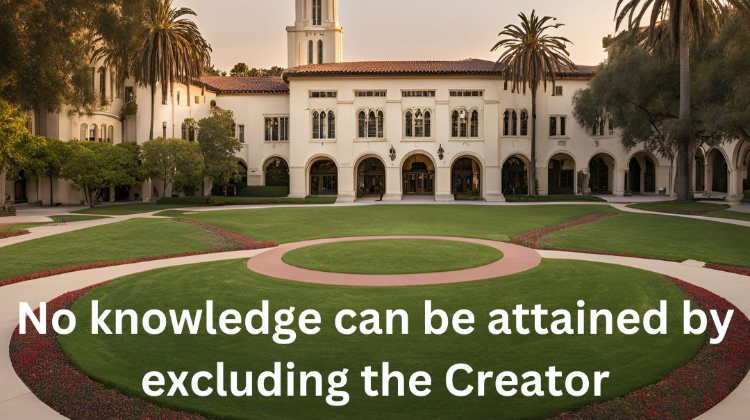
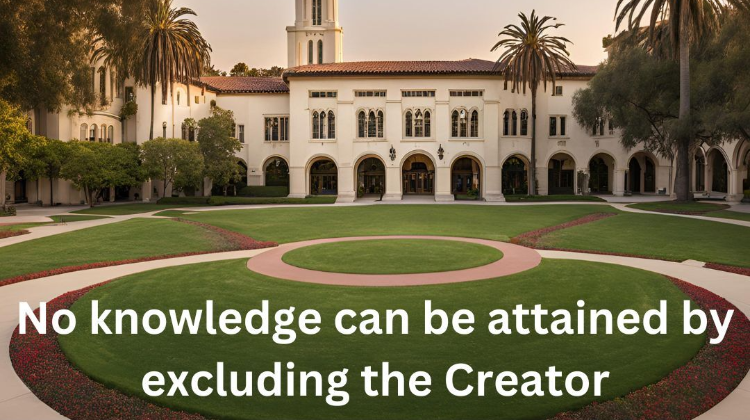
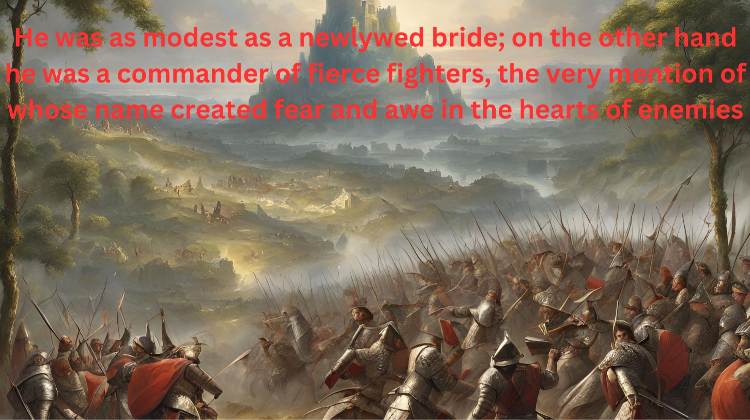



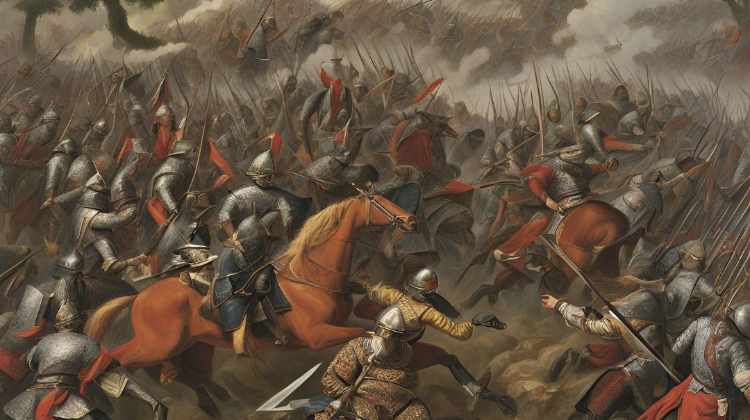
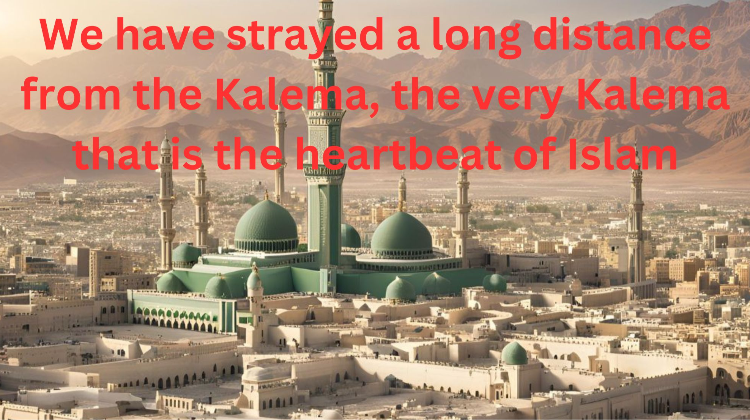
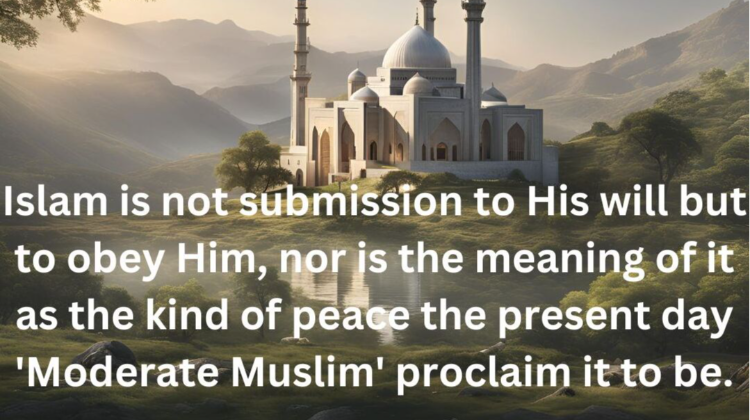

Leave a Comment